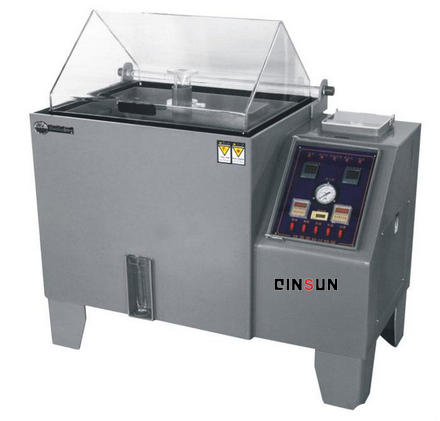What is salt spray cabinet?

A salt spray cabinet, also known as a salt fog chamber or salt spray chamber, is a testing apparatus used to simulate and evaluate the corrosion resistance of materials and coatings. It creates an accelerated corrosion environment by subjecting the test specimens to a controlled, continuous spray of a saltwater solution.
The salt spray cabinet consists of a sealed chamber or cabinet made of chemically resistant materials, such as PVC or stainless steel, to prevent leakage. Inside the chamber, there are racks or holders to position and suspend the test specimens.
The key component of a salt spray cabinet is the atomizing nozzle or nozzles that deliver a fine mist of a saltwater solution into the chamber. This solution typically contains sodium chloride (NaCl) dissolved in water, and the concentration may vary depending on the specific test requirements or standards being followed.

The test specimens are exposed to the salt spray for a predetermined period of time, usually specified by applicable industry standards, such as ASTM B117 or ISO 9227. During the exposure, the corrosive saltwater mist interacts with the surfaces of the test specimens, promoting the formation and progression of corrosion.
Salt spray cabinets often have controls for temperature, humidity, and spray duration to create a consistent and reproducible testing environment. They may also have features like viewing windows or cameras for visual observation of the specimens during the test.
After the test period, the specimens are evaluated visually for signs of corrosion, such as rust, blistering, pitting, or discoloration. The results can be used to assess the corrosion resistance of materials, compare different coatings or surface treatments, or determine the effectiveness of corrosion protection measures.
It is important to note that while salt spray testing is a widely used method for evaluating corrosion resistance, it does not perfectly replicate real-world environmental conditions. Therefore, the findings from salt spray tests should be interpreted in conjunction with other relevant tests and field performance data for a comprehensive assessment of a material or coating's corrosion resistance.
2023-08-04 10:00

